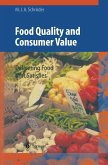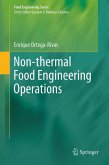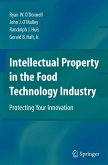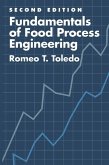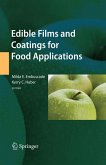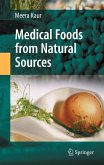The book introduces the concept of research as process in the first chapter. Subsequent chapters focus on individual unit operations of research: idea generation, problem definition, critical evaluation of the literature, method selection, experimental design, data collection, processing and analysis, and knowledge dissemination. Successful graduate students in food science must master each of these operations. The final section of the book pushes the reader beyond graduate school into its practice in the real world. Topics covered in the maturation of a food scientist include the scientific meeting, critical thinking, science and philosophy, ethics, finding and managing the literature, planning, grantsmanship, laboratory setup and management, and career development. This book should be a meaningful companion for any graduate student in the field and those transitioning from graduate school to the food science profession.
Dieser Download kann aus rechtlichen Gründen nur mit Rechnungsadresse in A, B, BG, CY, CZ, D, DK, EW, E, FIN, F, GR, HR, H, IRL, I, LT, L, LR, M, NL, PL, P, R, S, SLO, SK ausgeliefert werden.
"The book would also be useful in informing non-scientists about what scientists do and how they do it. ... every chapter contains some very practical advice as well as a brief more intellectual discussion of the topic. Each chapter contains charts, diagrams, or photographs and reference citations. ... The color photographs are of excellent quality ... . The chapters are mostly self-contained so the book could easily be used as a resource for a seminar for students beginning or about to begin research." (Grady Chism, Journal of Food Science Education, Vol. 11, 2012)




